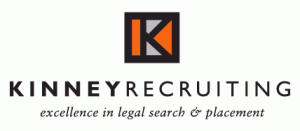
As the legal industry continues to navigate uncharted waters and biglaw offices remain physically closed throughout much of the world, many of our candidates have asked us what the interview and onboarding process looks like during this trying time. Although dramatically throttled down, lateral hiring at major firms and premier boutiques has not entirely ceased and firms are actively interviewing. We continue to represent candidates, primarily in bankruptcy, executive compensation, specialty litigation, life sciences, healthcare, and other niche practices. As you would expect, the interview process has shifted toward cell, Skype and Zoom calls, but candidates continue to navigate the process toward a successful result. So, what if you are one of the lucky candidates to actually interview, receive, and accept a job offer with a major law firm during this weighty time of COVID-19? How will your new firm bring you onboard and what should you expect once you start? We asked two of our very recently placed candidates: both mid-level financial restructuring associates who joined Amlaw 50 law firms (one in Texas, one in New York) about their experiences virtually onboarding and working remotely at their new shop. Here are the takeaways:
The experience has been surprisingly smooth. Our Texas candidate conducted orientation via phone and Skype over two days filled with set appointment times. He also had a call with his firm’s IT department and they FedEx’ed him a work computer that same day. Upon receipt, he had a follow-up call with the IT department and they had him up and running a few hours later. Our New York candidate also recalled a smooth transition. The law firm FedEx’ed his laptop to the firm’s Hong Kong office (where he is currently stuck) and he was able to onboard remotely with the firm’s IT team in NY.
In terms of getting first work assignments, our Texas candidate tells us that this process has not been all that different from his previous firm. His practice group dials-in for a team meeting every week, and since he is working with partners in various offices, they communicate via phone and (mostly) email. For one of his work matters, he says the project team has a weekly Zoom call offering another opportunity to interact with new colleagues in various offices.
But what about the more personal aspects of joining a new firm, such as getting to know your colleagues on a personal level? Our Texas candidate tells us that it “really hasn’t been a problem getting to know my team.” He has received personal calls from most members of his practice group offering assistance in getting to know more about the firm. He has also spoken to other attorneys in his office who have offered recommendations about his new city. In all, our Texas candidate describes his arrival as “very friendly.” Our NY candidate says the firm’s associates and partners have been very supportive of his situation and other than the time difference, as he acclimates to working NY hours, his transition to working remotely with the NY team has been seamless.
And might there even be some benefits to onboarding and working remotely? Our Texas candidate says, “I think I have more time in my day right now. My commute is just a walk down the hallway. It used to take me up to 45 minutes a day. And my daily life is also less expensive. I am not eating out or buying daily lunches.” He did mention that he made an exception for a BBQ brisket takeout order.
His advice for those going through the lateral process: “I would say to just relax. Law firms understand this is a very weird time right now and they are responding the best they can. It is in your and their best interest to get you on board as quickly as possible, so try to relax and be patient. And now that firms have had a month to deal with this unprecedented situation, I think for attorneys starting in April or May, [onboarding remotely] will be an even smoother process.” Our NY candidate, who also has a down-to-earth personality, agrees with the sentiment that it is best to relax and make the most of the situation.
But, of course, not all lateral transitions are going so smoothly in this unprecedented time. A candidate of ours in Brazil was set to start at her firm in March, but has been delayed due to the closure of the OAB, the Brazilian Bar Association, the authority granting foreign attorneys authorization to practice. So, as this candidate calmly sits in wait for her final approval to begin practicing in Brazil, she is using this downtime to polish her Portuguese language skills, which will help tremendously once she is able to start at her firm.
The takeaway is that law firms are nimble, IT departments have more tools than ever, associates are generally tech savvy, and certain practice areas continue to churn during this pandemic. Efficient, remote onboarding of attorney hires is a natural extension of these factors. And with the diminishment of ‘20 summer associate programs and delay of first-year starts in the fall, we expect the lateral market to continue to improve (albeit through competitive and narrow opportunities, at first) once stability returns and firm personnel are able to return to their physical spaces. For those seeking any career advice or representation in a lateral move, you know where to find us. Just like you, we are at home and thankful to be able to continue doing our work. We look forward to connecting.

